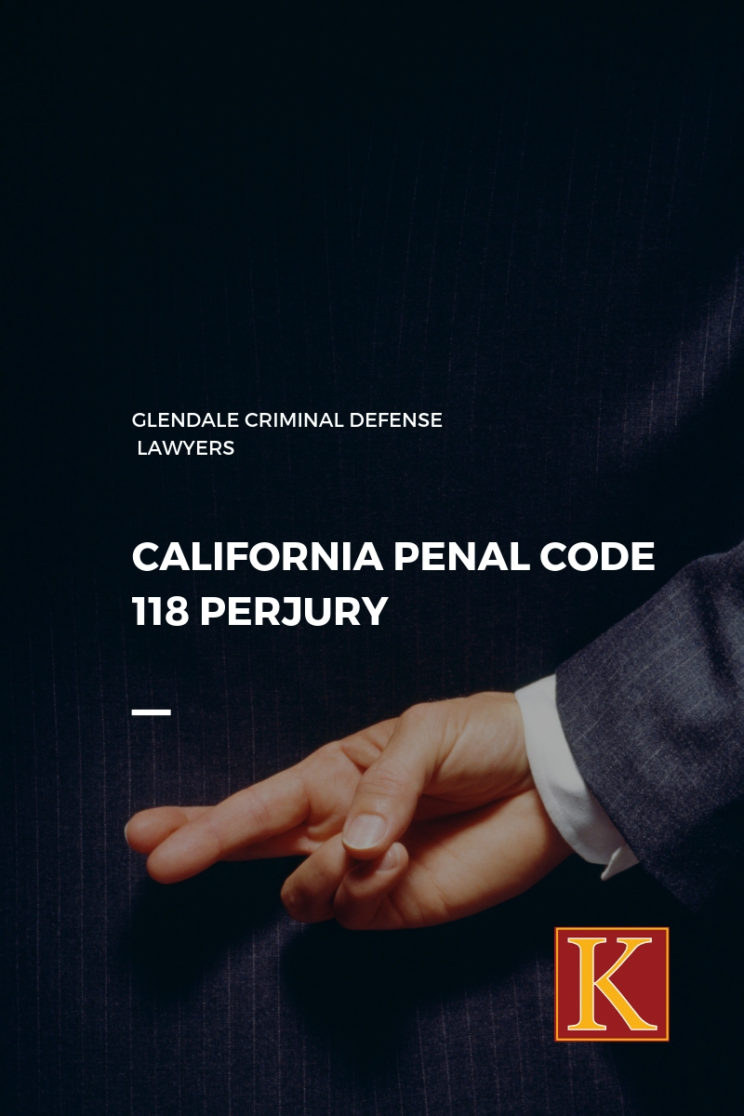Under California Penal Code Section 118 (PC 118) perjury is an act of knowingly and willfully making false statements after taking an oath, telling the truth, or signing a document that knowingly contains false statements.
Elements of Perjury California PC 118
The prosecutor must establish the following element to convict the defendant of perjury.
- Defendant took an oath or otherwise made a statement to provide a truthful information
- Defendant willfully stated the information was true knowing that it was false
- The information was considered material for the issue
- Defendant knew that he was making a statement under penalty of perjury or under oath
- Defendant intended to make a false statement while under penalty of perjury or under oath
What Does It Mean to Be Under Oath?
Being under oath is any legal method of confirming the truth of a statement.
The most obvious way to be charged with committing perjury is lying under oath during a court proceeding. In case the defendant testified in a civil or criminal or civil case and made a false statement he has committed perjury.
A person can also face perjury charges for willfully making false statements while he:
- Made a sworn affidavit
- Provided information for official certificates
- Filled out a driver’s license application
- Testified in civil depositions
Material information is the one that can influence or has a probability of affecting the outcome of the proceeding. There is no requirement that the information actually influence the proceedings
Suborning Perjury
Under California Penal Code Section 127 in addition to committing perjury a person can also be convicted for a “suborning perjury”. Suborning perjury means that the defendant intentionally persuaded, invited or coerced another person to commit perjury either in writing or verbally.
Legal Defenses for Perjury PC 118
Legal defenses for California PC 118 perjury charges include the following:
- Mistake or misunderstanding
In case the defendant did not knowingly make a false statement and honestly but mistakenly believed that his statement was true, this can be a valid defense.
- Defendant made an attempt to correct a false statement
In case the defendant corrected a false statement in a timely manner, the attempt can show that he did not have the intent to provide false information.
- The defendant was not under oath
The defendant can’t be found guilty in case he was not legally under oath when he made a false statement.
Penalties for a Perjury PC 118 Conviction in California
Violation of California PC Section 118 is a felony. The judge has the discretion to issue the penalty based on the seriousness of perjury, the defendant’s criminal record, and whether another person was harmed as a result of the perjury. Possible penalties are the following:
- Felony probation
- Up to one year in a county jail or
- Two, three, or four years in California state prison.
- A fine of up to $10,000
In case the defendant is convicted of perjury that leads to the conviction and execution of another person, he will be sentenced for aggravated perjury, which is punishable by a death sentence or a life sentence without the possibility of parole.
Perjury conviction will damage the defendant’s credibility and can lead to other potentially long-term and serious and consequences.
Are you someone who is in need of legal assistance due to being accused or charged with perjury? If so, you can get in touch with a criminal defense lawyer near you in order to receive the help that you need. In case you are located within the service area of KAASS Law, we may be able to assist you.

